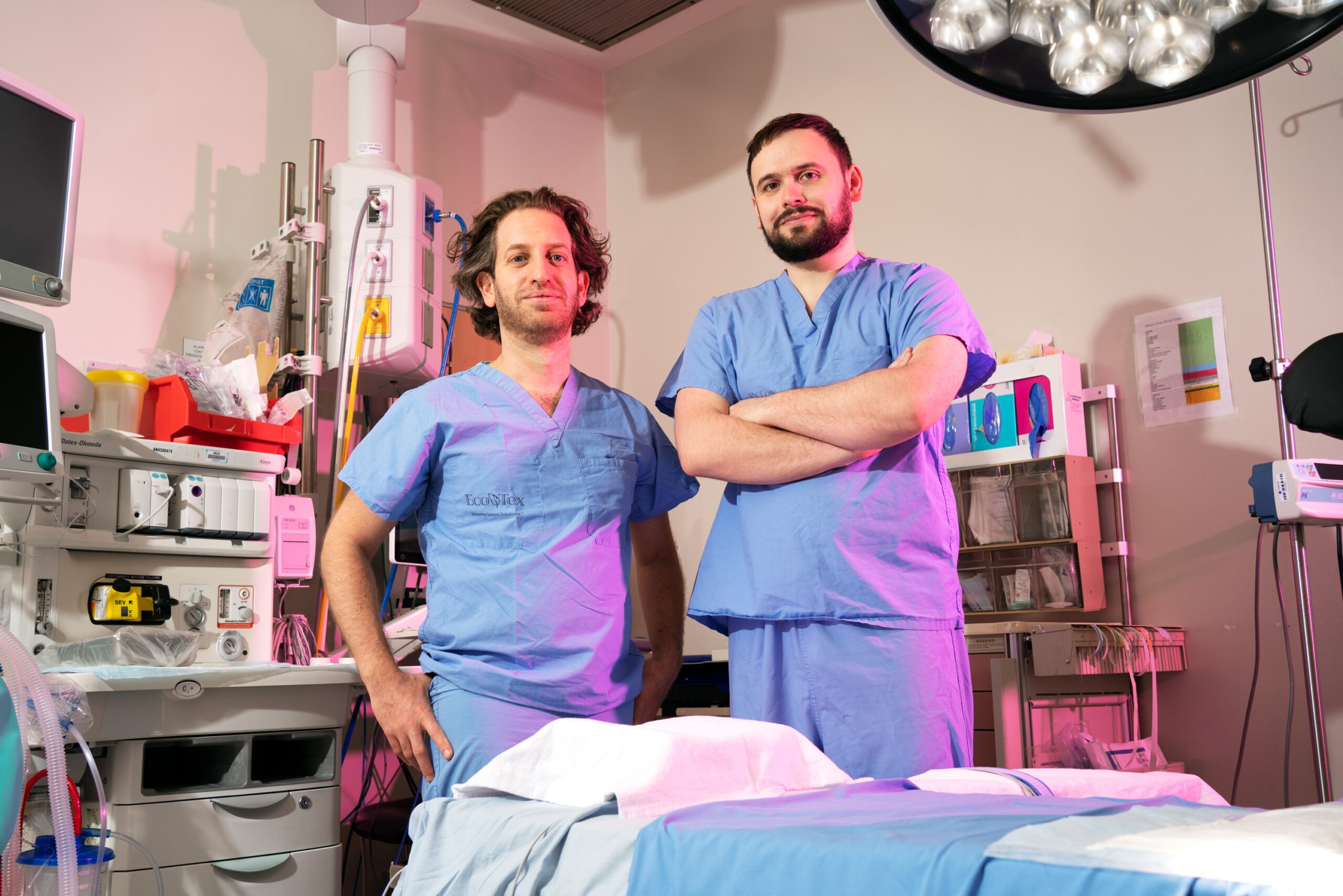Women’s College Hospital (WCH) remains at the forefront when it comes to providing accessible care to populations that experience marginalization by the healthcare system. Upon understanding gaps in the healthcare system for transgender and gender-diverse communities, the hospital launched Canada’s first publicly funded, hospital-based Transition-Related Surgery (TRS) Program in 2019 and has continued to expand broader access for gender-affirming care.
Through the training and recruitment of clinical staff with specialized expertise, WCH is building a comprehensive trans surgical program that saw more than 1,600 patient visits in 2022, with services including mastectomy with chest contouring, breast augmentation, hysterectomy, bilateral salpingo-oophorectomy, orchiectomy, vaginoplasty, vulvaplasty and more. In addition to providing these services, the team identified a need for increased access to follow-up consultation for patients who have undergone surgery elsewhere.
“When I was working in primary care, I saw a lot of patients who had lower transition-related surgeries out of province and, after returning home, would have complications, concerns or ongoing issues that required care,” says Emery Potter, Nurse Practitioner. “Unfortunately, education and training related to these surgeries is not yet widely integrated into nursing or medical schools, and it can be difficult to get high quality follow-up care and consultation for both patients and clinicians.”
When Potter left their primary care practice, they came to WCH to step into a role that would establish a new interdisciplinary TRS program. Alongside Dr. Yonah Krakowsky, urologist and medical director of the program, Potter and team initially focused on providing a hospital-based vaginoplasty post-operative care clinic.
“The vaginoplasty clinic has served a unique role where there was previously a void,” explains Dr. Krakowsky. “For the first time, patients from within and outside of Ontario with questions or complications from surgeries now have somewhere to turn if they are unable to access care from their primary surgeon.”
TRS’s vaginoplasty post-operative clinic also serves two other critical needs: clinical education and training in gender-affirming care and research into post-operative outcomes. Hospital-based clinics are required to track and study outcomes and data, and in early 2023, the TRS team released their first study into vaginoplasty post-operative outcomes and complications, which demonstrated the need for routine post-operative care in patients undergoing vaginoplasty.
The study also underscored the need for education related to gender-affirming care across the healthcare sector, as the most common post-operative concerns seen in the clinic could be managed by a knowledgeable primary care provider, rather than forcing patients to seek care in emergency departments or through untrained providers.
To supplement gender-affirming care education, the vaginoplasty clinic offers teaching and training opportunities for residents, medical trainees and doctors seeking further specialized training. “Through the vaginoplasty clinic, we are actively training healthcare providers across multiple disciplines on pre- and post-operative management of transition-related surgeries,” says Dr. Krakowsky. “This is hopefully equipping a new generation of physicians, nurses and pelvic physiotherapists to provide care to transgender patients.”
Having more healthcare providers equipped with the knowledge to care for transgender and gender diverse people will eventually increase access to this care as well as create a more seamless care continuum, where providers across health disciplines are equipped with the knowledge to provide follow-up care to patients who have had gender-affirming surgeries. Currently, WCH’s TRS team provides patients with numerous resources, collaboratively developed by Potter with patients and stakeholders, which they can take back to their primary care provider to assist with post-operative care.
“For patients in remote areas, we send them home with resources for their personal after care and for follow-up care from a physician, so they know what to expect,” explains Potter. “Sometimes providers need further information or assistance, and we can provide that to them over the phone, but there are still cases where patients will have to come back to us for post-operative care, which can be difficult for them.”
The TRS team has been doing their part to provide educational opportunities and increase capacity within the hospital, most recently adding two surgeons, Dr. Katie Armstrong, a plastic surgeon, and Dr. Alexandra Millman, a urologist. Training more healthcare providers through residencies and fellowship programs, like the TRS Fellowship offered at WCH, is also key to increasing capacity and better integration across the overall healthcare system.
“Our training programs, fellowships, community rounds and partnerships are all vehicles to make expanded access to care a reality,” says Dr. Krakowsky.
The team also engages medical professionals in TRS education through medical rounds and offers resources and training in collaboration with other Toronto healthcare organizations, including the Centre Addiction and Mental Health’s (CAMH) Gender Identity Clinic, The Hospital for Sick Children, Rainbow Health Ontario and Sherbourne Health, as well as medical training institutions like the University of Toronto’s Temerty Faculty of Medicine.
These strong community partnerships and the shared passion of the interdisciplinary teams dedicated to gender-affirming care, means that our vision of broader accessibility for all Canadians is in sight.


